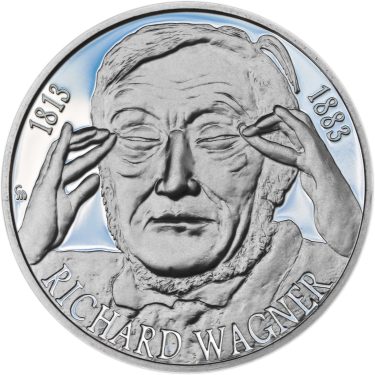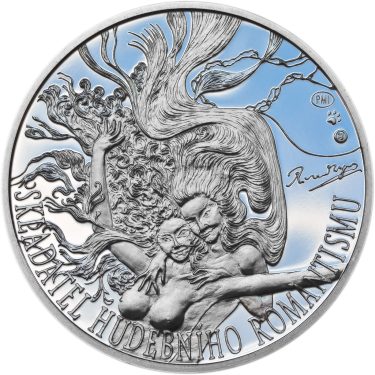Richard Wagner - 200. výročí narození Ag proof
BEST SELLERS
diameter: 37 mm
weight: 31,1 g
purity: 999/1000 Ag
edge plain, numbered
limited mintage quality proof: 616 pcs
limited mintage quality antique: 227 pcs issue day: 2013
Objednávkový kód: CRM1133
weight: 31,1 g
purity: 999/1000 Ag
edge plain, numbered
limited mintage quality proof: 616 pcs
limited mintage quality antique: 227 pcs issue day: 2013
Objednávkový kód: CRM1133
KRÁSA POD LUPOU
Fotografie použity se svolením Zlatemince.cz.
Fotografie použity se svolením Zlatemince.cz.



